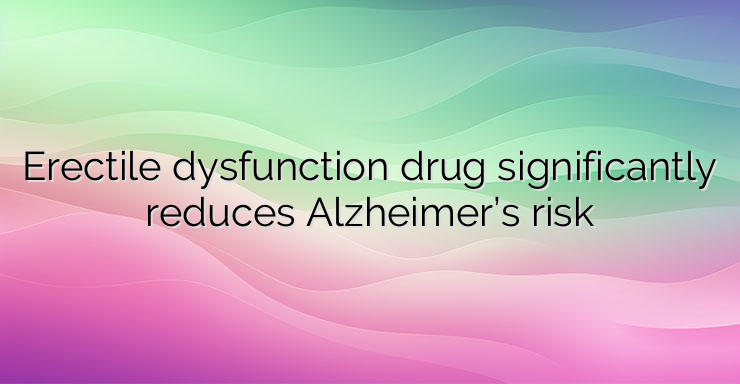Between 30 and 54% reduced risk of Alzheimer’s disease in patients using erectile dysfunction treatment, a large data analysis shows. The study also removes the confounding factors and in this sense the obtained data are robust. It is further supported by mechanistic studies showing decreased levels of a neurotoxic protein in brain cells exposed to phosphodiesterase type 5 inhibitor (PDE5i). According to Dr. Faixiong Chen, director of the Cleveland Clinic Genome Center, the results show the feasibility of considering an already approved drug as a new treatment for the dreaded dementia disease. In data analysis, researchers use artificial intelligence to integrate the multitude of data. For this purpose, the MarketScan Medicare Supplemental database (2012-2017) and the Clinformatics database (2007-2020) were used, adjusting for sex, age, race and co-morbidities. In addition, results were compared with four more lacquers – bumetanide, furosemide, spironolactone and nifedipine, finally concluding that the use of sildenafil was associated with a reduced likelihood of Alzheimer’s compared to the others. Sildenafil use was associated with a 54% reduced risk of Alzheimer’s in MarketScan and 30% in Clinformatics compared with spironolactone. The findings support a study published earlier this year that found a potential protective effect of PDE5i on Alzheimer’s risk. It should be noted, however, that these two studies are in contrast to an older 2022 study presented in Brain Communications that found no link between taking erectile dysfunction medications and a reduced risk of Alzheimer’s. However, sildenafil appeared to reduce tau hyperphosphorylation (pTau181 and pTau205) in a dose-dependent manner in both familial and sporadic Alzheimer’s patients induced by neuron-derived pluripotent stem cells (iPSCs), the researchers added. By analyzing the RNA sequencing data, the researchers further understood that sildenafil targets dementia-related genes and pathobiological pathways, mechanistically sustaining the drug’s beneficial effects in Alzheimer’s patients. This, of course, does not mean that the drug is a weapon against the still incurable and insidious disease, but it is a serious reason for conducting further clinical trials of sildenafil regarding its effects in Alzheimer’s disease. The study was supported by the National Institute on Aging (NIA) and the National Institute of Neurological Disorders and Stroke (NINDS), USA, and can be found online in the Journal of Alzheimer’s Disease. References: https://content.iospress.com/articles/journal-of-alzheimers-disease/jad231391


Leave a Reply